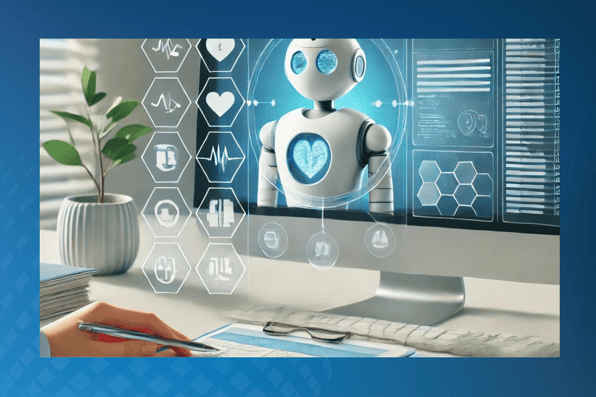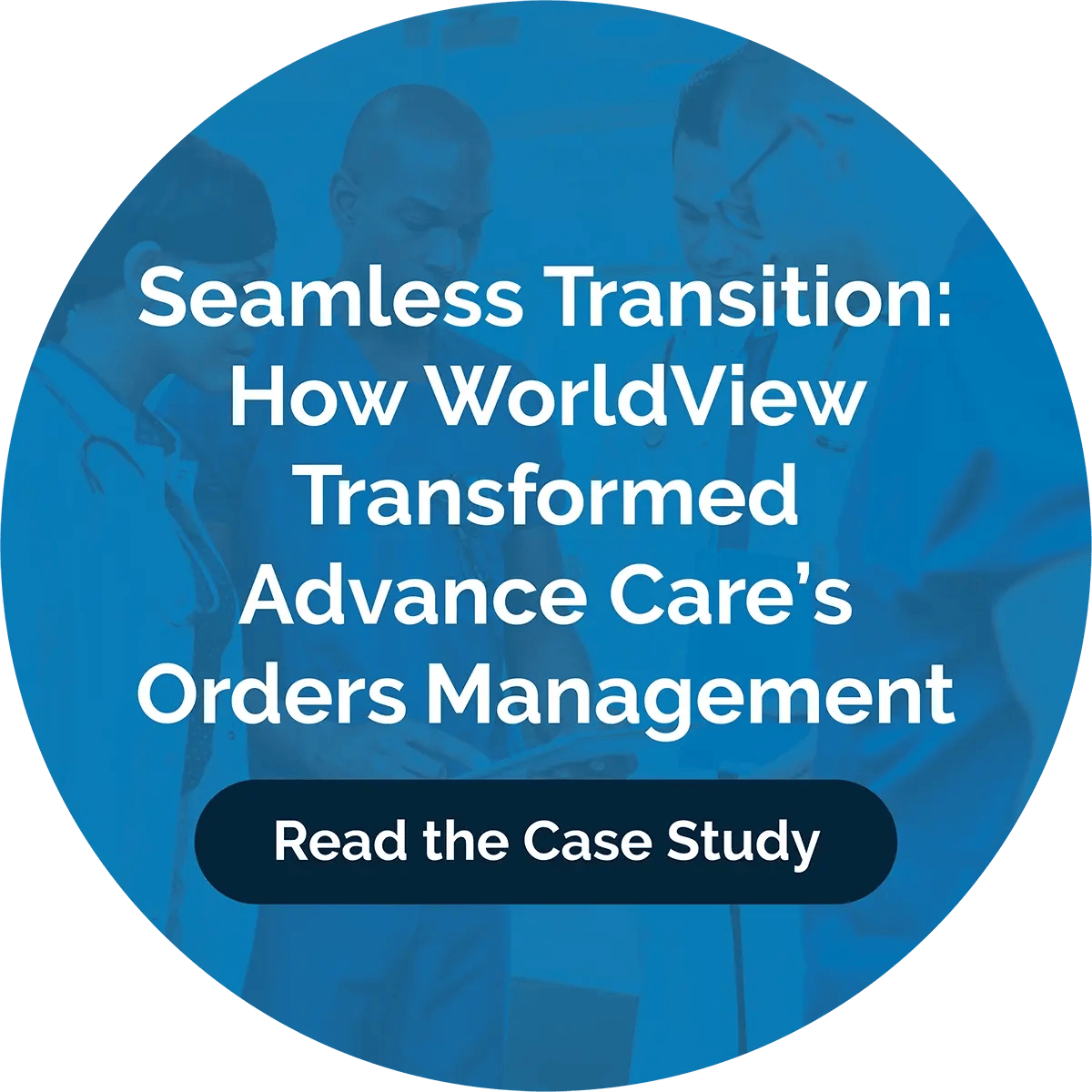Key Considerations for Implementing AI in Healthcare Documentation

Artificial intelligence has come a long way since its inception, and more healthcare agencies are taking advantage of the technology in multiple ways. Voice-enabled digital assistants and speech recognition tools fill out paperwork for you with improved accuracy, freeing you up to focus more on patient care.
But AI is not a quick fix. These tools are still new and not all of the kinks have been worked out. Consider these factors before implementing an AI documentation platform.
Understanding AI in Healthcare Documentation
New healthcare software uses artificial intelligence to help with the decision-making process. Many healthcare professionals use these tools to record notes during patient visits and analyze medical charts, identifying patterns and guiding care plans.
You can use AI to fill out electronic health records (EHR) for medical billing and claims. These tools can record and transcribe visits in real-time, saving the hassle of transcribing notes afterward. Since you don't have to record and transcribe your notes, you can get accurate charts and medical documents.
Benefits of AI in Healthcare Documentation
Digital transformation in healthcare, including expanded use of AI, can potentially revolutionize patient care. Here are some of the advantages of using AI for healthcare documentation.
Enhanced Accuracy and Reduced Human Error
With AI, you can reduce the amount of paperwork your administrative team is processing manually. You can train AI to fill out medical claims and other paperwork, verify eligibility, and identify insurance information.
Handing these tasks off to a digital platform reduces errors that typically result in claim denials. Additionally, your administrative team can focus on more complex aspects of their job instead of spending time on data entry.
Improved Efficiency and Throughput
Because AI can process information faster than your administrative team, you can improve their efficiency. AI quickly scrubs claims so you don't have to. You can process and submit more clean claims per day to improve your revenue.
AI can also analyze large volumes of information faster, allowing you to see patterns in patient records that could impact diagnosis. Being able to diagnose a patient quickly lets you treat them earlier and improves outcomes.
Streamlined Workflow and Time Savings
AI takes automation to the next level. While traditional digital documentation and EHR software allow you to set up alerts and other tools to streamline processes, AI lets you automate appointment scheduling, insurance verification, claims processing, and other time-consuming tasks.
It also evaluates patient referrals and uses algorithms to assess the urgency of each case. This allows you to prioritize patient loads more effectively while providing exceptional care.
Challenges and Considerations
Despite its many benefits, AI also presents several challenges.
Data Privacy and Security Concerns
Healthcare is a highly regulated industry, and AI algorithms could potentially put your patients’ data at risk. Since AI analyzes data in large volumes without full transparency, there is a risk of accidentally exposing private treatment details, patient notes, and more. You can safeguard your practice by communicating openly with your patients and getting their consent before sharing any relevant information.
AI is also only as good as the data used to train it. Since existing medical data often includes biases and fairness issues, AI could lead you to misdiagnose or underdiagnose certain groups of people.
Integration With Existing Systems and Workflows
AI-powered clinical document analysis in the healthcare industry impacts every aspect of caregiving. You can use AI to evaluate medical scans and aid in diagnostics. However, these systems need to be integrated to be effective.
For example, if you want to use AI to evaluate medical imaging scans, you need to make sure you’re using imaging software that integrates with new, AI-powered platforms. Overhauling your system to integrate AI can be costly.
Training and Adoption Among Healthcare Professionals
Once you’ve decided to adopt AI, you need to get your administrative and clinical teams on board. Implementing technology and new processes takes time, and some of your team members may be hesitant to change.
Best Practices for Implementing AI Solutions
If you’re ready to make AI work for your practice, follow these tips.
Choose the Right Platform for You
Start by assessing your needs to see where AI can make your workflows faster and more efficient. You want a platform that can do everything from electronic document processing to managing patient referrals.
Find a solution that integrates with your existing software so you don’t have to replace multiple systems.
Ensure Proper Data Management and Security Protocols
Minimize the risk of compromising patient data by putting robust security protocols in place. Before choosing a solution, ask about security measures. Additionally, consider using a tool with multi-factor authentication and set standards for who can access the system.
Train Staff and Provide Continuous Support
Choose a solution that offers comprehensive training and support. Learning a new system takes time, so look for a user-friendly platform with a thorough training process. Make sure to take advantage of the support team to help your team get up to speed.
WorldView’s AI Healthcare Documentation Solutions
Always at the forefront of technology, WorldView offers AI-powered solutions for documentation and patient referrals for home healthcare, hospice, and other healthcare settings. Our platform analyzes each referral to speed up your intake process and onboard your patients faster. You can also use it to analyze data for real-time insights.
Reduce errors and produce accurate documents with WorldView's solutions for effective patient care and faster claims processing.
Future of AI in Healthcare Documentation
AI continues to advance, and its uses are also evolving. In the future, AI could help you audit your records for compliance and quality. It could also benefit clinical trials by quickly evaluating study data and identifying patterns and other important takeaways.
In Summary
With AI constantly improving, it is an exciting time for healthcare professionals. Its applications can help reduce errors and improve your ability to diagnose and treat patients. While there are some security concerns, adhering to consistent protocols and managing data access can help you protect your patients.
If you’re ready to make the switch, choose a reputable provider like WorldView. Our platform integrates with multiple systems, and we offer exceptional customer support to help you train your team. Schedule a demonstration to learn more about how we can help improve your practice with AI.
Blog Post Tags
BusinessGet Awesome Content Delivered Straight to Your Inbox!
Posts by topic
- Healthcare
- Business
- AI
- Hospice
- AP Workflows
- Home Care Management
- hospice-care
- General
- Industry Insights
- agency
- Blog
- Commercial
- reporting
- Data Analytics
- billing
- referrals
- News
- Referral AI
- business goals
- Operations
- business development
- partners
- Integration
- Healthcare Trends
- leadership
- Medicare
- Compliance
- audit
- medicaid
- Better Charting
- Home Health Reimbursement
- Medicare Compliance
- regulations
- Application
- Automation
- CMS Updates
- finance
- CRM
- DMSi
- Events
- KanTime
- LUPA Threshold
- Press Release
- Revenue Growth
- Announcements
- Artificial Intelligence
- EHR
- ESign
- Guides
- Homecare Homebase
- Mobile
- PDGM 2026
- Physician Order Tracking
- axxess
- clinical
- document management
- home Health Operations
- hospice workflow
- interoperability
- payor
- workflow automation See All See Less


.png?width=596&name=23%20(1).png)
.png?width=596&name=1%20(18).png)
.png?width=596&name=1%20(14).png)